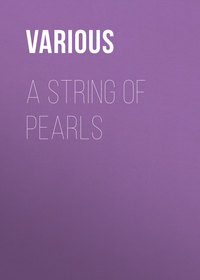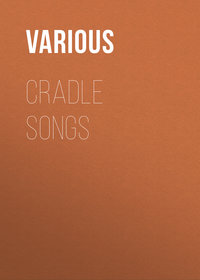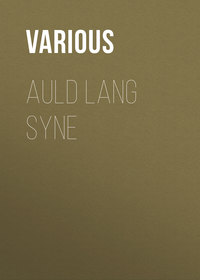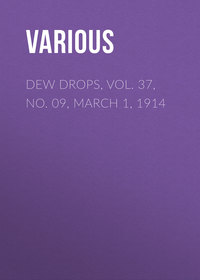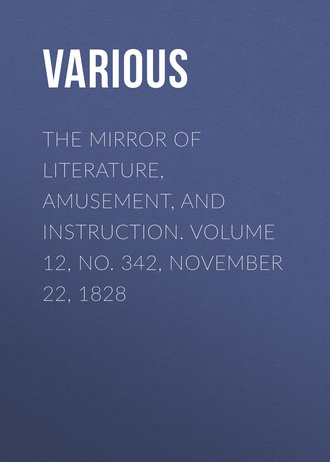
The Mirror of Literature, Amusement, and Instruction. Volume 12, No. 342, November 22, 1828

Various
The Mirror of Literature, Amusement, and Instruction / Volume 12, No. 342, November 22, 1828
COUNCIL OFFICE, &c. WHITEHALL
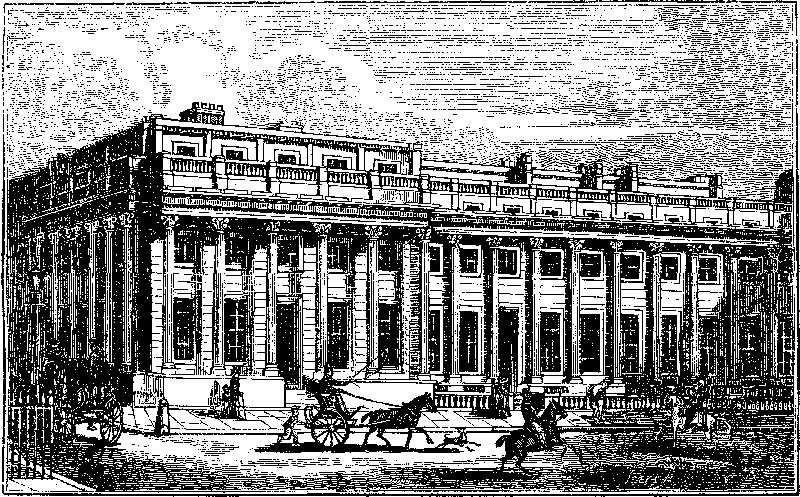
From the Druids' Temple, at Abury, (our last engraving,) to the Council Office, at Whitehall, is a long stride in the march of time. From "grave to gay, and lively to severe," is nothing to it; but variety is the public dictum; and with more sincerity than the courtier in Tom Thumb, we say to the public,
"Whate'er your majesty shall please to name,Long cut or short cut, to us' tis all the same."On the annexed page is represented the new splendid range of buildings, including the Council Office, Board of Trade, &c. at Whitehall. The architect, Mr. Soane, has adapted the façade from the Temple of Jupiter Stator, at Rome.1
But Mr. Soane's adaptation has been only partial, and he has adhered merely to the details of the columns and entablature. "The façade," it is well observed in an early Number of the Athenaeum, "enjoys one of the most favourable sites for the display of a public building which the metropolis affords; no limit has been set to the expense; the finest materials the country yields have been used in its construction; the richest example of the richest order which antiquity has left us, has been lavishly employed in its decoration; and yet," continues the critic, "is not the whole a failure?" He then describes the effect of it as "poor, or at best but pretty," and attributes the absence of grandeur to the "want of sufficient elevation."—"To the general elevation it may be objected, that it has no prominent centre; that, composed of two wings and an intermediate space receding, it has more the character of a flank than a front building; and that the want of a central entrance derogates greatly from its dignity as a principal façade."
But we are mere amateurs in these matters, and it will be as well to leave the remainder of this criticism to the more studious reader. We have, however, glanced at the principal defects which the writer in the Athenaeum points out, and we are bound to admit the justice of his remarks. The details which produce this effect would not be so generally interesting. "The order itself," says he, "it must be admitted, is well copied, and excellently executed;" but Mr. Soane's application of it is loudly censured—a Roman temple being inappropriate for a British Council Office. Perhaps our critic would have preferred a façade like that of the Palais de Justice at Paris,—a platform, ascended by an immense flight of steps, which serves as a basement for a projecting body of four Doric columns; with four large pedestals in front, and statues of Strength, Plenty, Justice, and Prudence, as the cardinal virtues of English legislation and trade.
Upon the whole, we cannot help thinking some of the details of this new range extremely rich and pleasing, although we assent to the above character of their general effect. The columns, of fluted Corinthian, and the cornice of the order, are to us very beautiful; but the upper windows are unsightly, or, as a wag would say, purely attic; and the entrances are too strictly official for the architecture of the building. This brings us again to the inappropriateness of the adaptation, which made these introductions unavoidable.2
The front of the building is not completed, the northern wing having yet to be erected. When this is finished, the effect may be materially assisted.
While we are in this quarter, and lest "we may never come again," it may be as well to thank our correspondent, "An Architect," for his letter on "Whitehall," a very small portion of which has ever been completed. What has been finished—the Banqueting House—is one of the triumphs of Inigo Jones, but like all human works, is sadly dilapidated; although this is attributable to the bad material, rather than to the interval since its erection. The whole was, indeed, a magnificent design.
CROMLECH
(To the Editor of the Mirror.)In No. 328 of the MIRROR, you mistake in spelling cromlech; the last syllable is always written lech, not leh; neither is it derived from crom and leac, the Irish, but from crom and llech, the Celtic, of which the Irish is the most corrupted, and the present Welsh the most pure dialect. Llech signifies a stone in Welsh, and is pronounced in a way peculiar to the Welsh; when simple it is llech, when compounded lech.
RUPERT C.GARDEN OF HYACINTHS
IN THE SERAGLIO, CONSTANTINOPLE(For the Mirror.)In this garden the sultan passes most of his leisure hours, free from the outward parade attendant on his rank. It is small, but tastefully disposed in oblong beds, edged with fine porcelain; no plant is allowed to grow in it except the hyacinth; whence the name of the garden and the apartment it contains. Nothing can be more beautiful than the interior; three sides are formed by a divan, the cushions and pillows of which were of black satin, exquisitely embroidered. The floor was covered with Gobelin tapestry, and the ceiling magnificently gilded and burnished. Opposite the windows of the chamber was a fire-place, in the European manner; and on each side a door, covered with hangings of crimson cloth. Between each of these doors appeared a glass-case, containing the sultan's private library; every volume was in manuscript, with the name written on the edges of the leaves. Opposite the doors and fire-place hung three gold cages, containing artificial birds, which sang by mechanism. On one side was a raised bench, on which was placed an embroidered towel, a splendid vase, and basin for washing the hands and beard; upon the wall over it was suspended an embroidered portfolio, worked with silver on yellow leather, to contain the petitions presented to the sultan when he goes in procession to the mosque. Close to the door was placed a pair of yellow boots and slippers, which are always at the entrance of every apartment frequented by the sultan. Groups of arms, such as pistols, sabres, and poniards, were displayed with great taste and effect on the compartments of the walls; the handles were covered with diamonds and jewels of large size, which, as they glittered around, gave an almost dazzling brilliancy to this sumptuous chamber, thus characterizing the amusements of the man when divested of the ceremony and formality of the sultan.
INA.NEEDLE-WORK ALTAR-PIECE
(For the Mirror.)The town of Welwyn, Hertfordshire, was the last place of residence of Dr. Young, author of "Night Thoughts," where he was rector. His pious lady employed her leisure hours with her needle, in the completion of a most elegant altar-piece, which now embellishes the sacramental table in the church; and, through the care of the parish clerk, this specimen of the indefatigable mind of Mrs. Young has been surprisingly preserved. The words down the centre,
I AMTHE BREADOFLIFE,have the appearance of being the production of a most masterly pencil; and the word "life" is in as fine a state of preservation as on the day when it was first presented by the benevolent artist; every tint, including the light and shade which surround the word, having withstood the ravages of time, and been ingeniously preserved by a kind of gauze covering.
W.G.C.LOCUSTS AND WILD HONEY
(For the Mirror.)It has not been till lately that any of the travellers into Palestine have told what was meant by the locusts mentioned by St. Matthew as part of the food of John the Baptist. Dr. Clarke first related, that a tree grows in the Holy Land, which is called the locust tree, and produces an eatable fruit; but this fact was well known to many who had been in the Mediterranean. The tree grows in several of the countries which border that sea. It has been found in much greater abundance in some parts of the East Indies, whence it has now become an article of export. Many thousands of its pods are annually imported by the East India Company; and, either because the fruit is richer in more southern climates, or for some other reason, a great quantity of them are shipped for Venice and Trieste, where there is distilled from them a liquor, which is supposed to be an antidote to the plague, or at least useful in curing it. These pods are about twenty inches long, and from half to three-quarters of an inch in diameter. We call them pods for want of a term which would more accurately describe them; but they are not flat, neither have they that sort of hinge on one side, and slight fastening on the other, which plainly show how the shells of peas and beans are to be opened. On the contrary, these are round; but there are two opposite lines along them, where the colour alone would induce any one to suppose the skin to be, as it is, thinner than elsewhere. Having the fruit before us only in a dry state, we can describe it in no other; but at present a knife could scarcely be made to penetrate the thicker part, and does not very easily make its way into the thinner. The fruit, which lies in little cells within, is a pulp, or paste, somewhat like that of tamarinds, but smoother, and not so sweet. There are pips in it nearly as hard, and about half as large, as those of a tamarind, containing a kernel in each. It should be added, that in the stems of this locust tree wild bees still deposit their honey.
W.G.C.FLOWERS
(To the Editor of the Mirror.)On reading the MIRROR, No. 337, my attention was attracted to one of your many pleasant and amusing extracts from the "Public Journals," bearing the title of "Flowers." Being myself a great admirer of that beautiful and delightful part of creation, I was led to peruse the article with somewhat increased attention. In all ages flowers have been regarded with peculiar sympathy; they have been associated with the calm serenity of virtue; they have been strewed around the altars of devotion; have been made to accompany the lonely, unobtrusive works of merit; and hung around the grave of faded and departed innocence, thus silently, but powerfully, depicting virtue, the essence of felicity. Although I do not consider you to be accountable for statements contained in the articles extracted from other journals, still I presume you would not knowingly make your work the vehicle of any matter which would lead your readers astray. I have, therefore, ventured to call your attention to a particular part of the above article, and to correct what I presume to be a misstatement.
In the article alluded to, the writer states, "It has been said that flowers placed in bed-rooms are not wholesome; that cannot," he remarks, "be meant of such as are in a state of vegetation," &c.
Now plants, it is well known, respire similarly to animals, through the pores of their leaves. By the agency of the sun, during the day, a quantity of pure gas, called oxygen, is given out; but on the contrary, during the night, or absence of the sun, gas of a most noxious and pernicious nature is emitted, and at the same time a portion of the pure air (oxygen gas) is absorbed. The greater part of the atmosphere must therefore be impregnated with this deleterious gas. Taking into consideration the confined state of a bed-chamber, the great increase of perspiration of the body, with the continual increase of carbonic gas from respiration, and this in an apartment where every thing ought most sedulously to be avoided which in the least tends to deteriorate the atmosphere, it must be evident the practice ought to be avoided, if we are desirous of preserving health.
Flowers in a state of vegetation are, I consider, more pernicious at night, or during the absence of the sun, than those plucked and put into water, provided they be not immersed too long a time; for immediately the stem is severed from the plant, the vital action, if it may be so termed, ceases, and decomposition commences; but till the decomposition has been going on some time, nothing of a pernicious nature need be apprehended. In like manner, directly the vital principle becomes extinct in animals, decomposition ensues. For the space of five or six days, however, no perceptible alteration of the fibres is visible; but after that time a compound of gases begins to exhale from the body, accompanied with a fetid odour, till the parts are entirely decomposed.
The effluvium arising from the farina and petals is considered unwholesome, however agreeable it may be to the senses, whether the plant be in a state of vegetation or not, it being too powerful for the olfactory nerve.
S.S.T.Our pages are always open to the correction of our readers, and in this instance we thank S.S.T. for the above, although we think he has misconceived some portion of the article on "Flowers," the writer adding to that passage quoted by our correspondent, "provided fresh air is frequently introduced"; of course, he does not refer to the night-time, although it would have been clearer, had he suggested the removal of flowers from bed-rooms during the night.—ED.
CIRCULAR TEMPLES
(For the Mirror.)These structures are generally supposed to have been built with astronomical allusions, especially the noble temple at Stonehenge. Circular temples existed among the Israelites. In Exodus, c. xxiv. v. 4, it is written that "Moses rose up early in the morning, and builded an altar under the hill, and twelve pillars." Again in Joshua, iv. 9, Joshua set up twelve stones; and it is well worthy of remark, that the twelve pillars of Moses and Joshua correspond with the number of stones of the inner circles at Abury. It is possible that these stones were plastered over, and probably highly ornamented, as in Deuteronomy, xxvii. 2, we read, "Thou shalt set thee up great stones, and plaster them with plaster;" and there is a large, upright stone in Ireland, which, according to the legend of the country, was once covered over with gold. On some of these pillars it is likewise probable that certain characters were traced, as among the Israelites words of the law were written upon similar obelisks or columns.
The earliest temples in Greece were formed of obeliscal columns; and in some parts of Africa the custom obtains to this day. Hence the pillars of our present temples are the most ancient; and subsequent builders of holy sanctuaries filled up the intercolumniations till the temples were constructed as we now see their ruins in Athens and elsewhere. But many of the early temples were round; and it is a curious fact, hitherto unnoticed, I believe, that the altar end, the sanctum of our earliest Saxon churches, is circular.
JAMES SILVESTER.ST. OLAVE.—A MANX LEGEND
(For the Mirror.)[Magnus, King of Norway, having committed sacrilege, by opening the grave of St. Olave, he was commanded by the spirit of the offended saint to perform the voluntary penance of quitting the kingdom in thirty days. He obeyed this intimation, and immediately left Norway. Having conquered many of the Western Isles, at length he established himself in the Isle of Man. Afterwards attempting the reduction of Ireland, he was surrounded by the natives and slain, with the whole of his followers.]
Olave, of rocky Norway's saints, the holiest and the best,Entomb'd in tumulus, enjoys a calm and peerless rest;By all of heav'ns votaries in saintly rank renown'd,As high in blessedness, and chief in holy missal crown'd.The dead—in holy, stilly peace, the sacred dead repose,Afar from earth's turmoil and grief, and all of sick'ning woes;From racking pain, and withering pride, and avarice's care,Secure they rest in solitude, unaw'd by sin or snare.To sack the gloomy sepulchre of lately living clay,From cheerful day and life remov'd, by dreaded death away,Is crime indeed of blackest hue, deserving exile's fate,From native climes ordain'd to feel an outlaw's dreary state.Could Norway's priest-despising chief, deem sacrilege a crimeFitting for absolution,—or dark penance of set timeThat daring such all dreaded sin, he gazes on the grave,And tramples o'er the hallow'd dust of canoniz'd Olave.Lone sepulchre in holy earth—sure wickedness so dire,Of holy man, and sacred place, incenses heaven's ire;Can less than ever banishment from Norway's ice bound land,Stay sure revenge—pursuing fate—and justice' awful hand?Away he sails—the foaming seas as Corsair now he laves,Dauntless—heroic—daring winds, and man-entombing waves,To visit other lands afar,—to combat chiefs of fame;In battle-field to spread around the dread of Norway's name.Lone Mona's sea-girt isle he dares with spear and flashing sword,Usurping regal rule and right by power of pirate horde;Yet vengeance drear, and dark desert of direst actions, craveA bloody death, a justice clear, and dark usurper's grave.On Erin's lovely land he falls—awarded darksome doom,When, ruffian-like, he dared profane the saintly Olave's tomb:He leaves his conquests, kingdoms, crowns, and all of earthly state,To sleep in loneliness, and fill his dark predicted fate. Kirk Michael, Isle of Man. A B.C.THE ANECDOTE GALLERY
A LIVING ALCHEMIST
(From Sir R. Phillips's Tour.)At Luton, Beds. Sir Richard hears of an ALCHEMIST, who lives at the village of Lilley, midway between Luton and Hitchen. The whole of his interview with this eccentric personage, will doubtless be interesting to our readers.
It was four miles out of my road, but I thought a modern alchemist worthy of a visit, particularly as several inhabitants of Luton gravely assured me, that he had succeeded in discovering the Philosopher's Stone, and also the Universal Solvent. The reports about him would have rendered it culpable not to have hazarded anything for a personal interview. I learnt that he had been a man of fashion, and at one time largely concerned in adventures on the turf, but that for many years he had devoted himself to his present pursuits; while for some time past, he had been inaccessible and invisible to the world, the house being shut and barricadoed, and the walls of his grounds protected by hurdles, with spring-guns so planted as to resist intrusion in every direction. Under these circumstances, I had no encouragement to go to Lilley, but I thought that even the external inspection of such premises would repay me for the trouble. At Lilley, I inquired for his house of various people, and they looked ominous; some smiled, others shook their heads, and all appeared surprised at the approach of an apparent visiter to Mr. Kellerman.
The appearance of the premises did not belie vulgar report. I could not help shuddering at seeing the high walls of respectable premises, lined at the top with double tiers of hurdles, and on driving my chaise to the front of the house, I perceived the whole in a state of horrid dilapidation. Contrary, however, to my expectation, I found a young man who appeared to belong to the out-buildings, and he took charge of my card for his master, and went to the back part of the house to deliver it. The front windows on the ground-floor and upper stories were entirely closed by inside shutters, much of the glass was broken, and the premises appeared altogether as if deserted. I was pleased at the words, "My master will be happy to see you," and in a minute the front door was opened, and Mr. Kellerman presented himself.—I lament that I have not the pencil of Hogarth, for a more original figure never was seen. He was about six feet high, and of athletic make; on his head was a white night-cap, and his dress consisted of a long great-coat once green, and he had a sort of jockey waistcoat with three tiers of pockets. His manner was extremely polite and graceful, but my attention was chiefly absorbed by his singular physiognomy. His complexion was deeply sallow, and his eyes large, black, and rolling. He conducted me into a very large parlour, with a window looking backward, and having locked the door, and put the key in his pocket, he desired me to be seated in one of two large arm chairs covered with sheepskins. The room was a realization of the well-known picture of Teniers' Alchemist. The floor was covered with retorts, crucibles, alembics, jars, bottles in various shapes, intermingled with old books piled upon each other, with a sufficient quantity of dust and cobwebs. Different shelves were filled in the same manner, and on one side stood his bed. In a corner somewhat shaded from the light, I beheld two heads, white, with dark wigs on them; I entertained no doubt therefore, that among other fancies he was engaged in re-making the brazen speaking head of Roger Bacon and Albertus. Many persons might have felt alarmed at the peculiarity of my situation, but being accustomed to mingle with eccentric characters, and having no fear from any pretensions of the black art, I was infinitely gratified by all I saw.
Having stated the reports which I had heard, relative to his wonderful discoveries, I told him frankly that mine was a visit of curiosity, and stated that if what I had heard was matter of fact, the researches of the ancient chemists had been unjustly derided. He then gave me a history of his studies, mentioned some men whom I had happened to know in London, who he alleged had assured him that they had made gold. That having in consequence examined the works of the ancient alchemists, and discovered the key which they had studiously concealed from the multitude, he had pursued their system under the influence of new lights; and after suffering numerous disappointments, owing to the ambiguity with which they described their processes, he had, at length, happily succeeded; had made gold, and could make as much more as he pleased, even to the extent of paying off the national debt in the coin of the realm.
I yielded to the declaration, expressed my satisfaction at so extraordinary a discovery, and asked him, to oblige me so far, as to show me some of the precious metal which he had made.
"Not so," said he; "I will show it to no one. I made Lord Liverpool the offer, that if he would introduce me to the king, I would show it to his majesty; but Lord Liverpool insolently declined, on the ground that there was no precedent; and I am therefore determined, that the secret shall die with me. It is true that, in order to avenge myself of such contempt, I made a communication to the French ambassador, Prince Polignac, and offered to go to France, and transfer to the French government, the entire advantages of the discovery; but after deluding me, and shuffling for some time, I found it necessary to treat him with the same contempt as the others."
I expressed my convictions in regard to the double dealing of men in office.
"O," said he, "as to that, every court in Europe well knows that I have made the discovery, and they are all in confederacy against me; lest by giving it to any one, I should make that country master of all the rest—the world, Sir," he exclaimed with great emotion, "is in my hands and my power."
Satisfied with this announcement of the discovery of the philosopher's stone, I now inquired about the sublime alkahest or universal solvent, and whether he had succeeded in deciphering the enigmatical descriptions of the ancient writers on that most curious topic.
"Certainly," he replied, "I succeeded in that several years ago."
"Then," I proceeded, "have you effected the other great desideratum, the fixing of mercury?"
"Than that process," said he, "there is nothing more easy; at the same time it is proper I should inform you, that there are a class of impostors, who mistaking the ancient writers, pretend it can be done by heat; but I can assure you, it can only be effected by water."
I then besought him to do me the favour, to show me some of his fixed mercury, having once seen some which had been fixed by cold.
This proposition, however, he declined, because he said he had refused others. "That you may, however, be satisfied that I have made great discoveries, here is a bottle of oil, which I have purified, and rendered as transparent as spring water. I was offered £10,000. for this discovery; but I am so neglected, and so conspired against, that I am determined it and all my other discoveries shall die with me."



